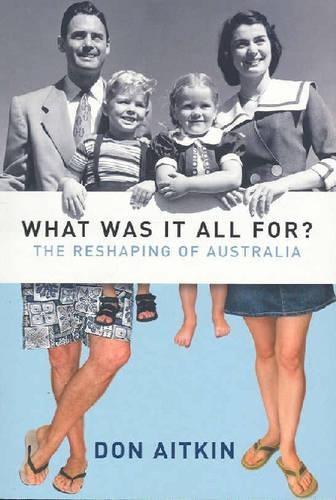
What Was it all For: The reshaping of Australia
(Paperback)
Publishing Details
What Was it all For: The reshaping of Australia
By (Author) Don Aitkin
Allen & Unwin
Allen & Unwin
1st October 2005
Australia
Classifications
General
Non Fiction
994.06
Physical Properties
Paperback
288
Width 140mm, Height 208mm
396g
Description
This is a remarkable book. Don Aitkin brings fresh insight to the question What does it mean to be Australian''' Hugh Mackay
To understand contemporary Australia this will be a mandatory read and one to be enjoyed.' Wendy McCarthyAO Chancellor, University of Canberra
This book touches the heart and the head. It is both a celebration of the Australian people and a warning about Australia's future.' Paul Kelly
Australia has emerged, sixty years after the end of the Second World War, as one of the world's most successful societies.
How did we go from being a blinkered and conservative former British colony, to the progressive and confident society we are today And how can we keep it this way These are the questions at the core of What Was It All For
In this compelling new book, Aitkin reflects on the key factors education, immigration and wealth that have produced this change. We've seen important advances in areas as diverse as sport and music, work and leisure, and religion. We've celebrated the changing status of women and observed shifting attitudes to the importance of Sunday and of churchgoing, the houses we buy and renovate, the books we read and the food we eat. But at what cost Strong community bonds have given way to an individualist, materialist ethic, while the very notion of community' has changed fundamentally.
Australians know who we aren't, as was the case in 1950, but are we any surer now of who we are or what we stand for
Enlivened by the life-experiences of his own high school Class of '53, Aitkin's new book is a must for anyone who wants to know how Australia got to be the way it is and what needs to be done in the future.
Author Bio
Don Aitkin was one of Australia's leading political scientists in the 70s and 80s, as well as writing a much read column in the august National Times. He published both text books and monographs, and a novel. He was Vice Chancellor of the University of Canberra for 10 years ad he also played squash for the ACT.
Now in active retirement, he is going back to the question of what has happened to Australian society over the last 50 years.
